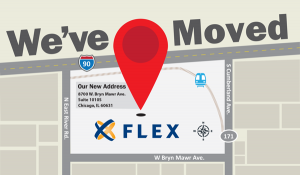Employers
People who have access to affordable coverage from their employer are ineligible to receive subsidies through the Health Insurance Marketplace, also known as the Exchange. For 2017, coverage is considered affordable if the employee’s share of premium for self-only coverage is 9.69% or less of their household modified adjusted gross income.
New service keeps you on track!
The world of ERISA, HIPAA, COBRA and general health care compliance is increasingly complex for businesses. Flexible Benefit Service LLC (Flex) wants to make sure nothing falls through the cracks.
Flex now offers Compliancedashboard® - a turnkey solution to help you make sense of your compliance obligations and minimize your risk. This simple, web-based compliance system gives your organization the information you need, when you need it.
The only way for an employer to provide certain benefits tax-free to its employees, such as health, dental or vision insurance, is through a Cafeteria Plan, as defined under Section 125 of the Internal Revenue Code. The only way for an employer to have a Cafeteria Plan is by preparing a written plan document which meets the requirements of Code Section 125. Failure to have a written document, or failure to operate a Cafeteria Plan in accordance with the terms of Code Section 125, disqualifies the plan as a Cafeteria Plan and results in gross income to the participants. In other words, any participant in the plan will lose the tax favorable status of the benefits that he or should would have otherwise received.
- Most U.S. citizens and lawfully present residents must have health insurance or pay a penalty. This is referred to as the Individual Mandate. The reporting helps the IRS understand who has health insurance coverage.










